What Is The Snake Diet And How Does It Aid In Weight Loss?
Learn the truth behind the fasting-focused diet that promises rapid weight loss.

Image: Shutterstock
The snake diet is a fasting diet that has gained immense popularity among people who want a quick fix to get the excess weight off. While it is similar to the 5:2i A fasting-based diet in which you follow a normal diet for 5 days and restrict your calorie intake to 500-600 for two days. and 16:8i An intermittent fasting method that involves eating only during an 8-hour window and fasting for the remaining 16 hours. diets in that it promotes prolonged fasting followed by a brief eating window, it is much more intense than them. It is especially known for its aggressive fasting protocols and unconventional approach to weight loss.
The diet is based on primitive eating habits and promises quick and drastic results. But does it really work? Can it actually benefit your health? In this article, we take you through everything you need to know about the snake diet, including its benefits, side effects, and the foods you can eat when you are on it. Scroll down!
 At A Glance: Snake Diet
At A Glance: Snake Diet- Principle: Introduce long periods of prolonged fasting and an extremely short eating window to promote fat burning and detoxification.
- Purpose: To aid quick weight loss.
- Who It Is For: Anyone who seeks a method for rapid weight loss.
- Duration: Short-term.
- Who Should Avoid: Children, pregnant and breastfeeding women, and anyone with an eating disorder or underlying health condition, such as diabetes and hypertension.
- Cons: Promotes an unhealthy relationship with food and may lead to malnutrition.
In This Article
What Is The Snake Diet?
The snake diet is a controversial and extreme form of intermittent fasting created by Cole Robinson, a self-proclaimed fasting coach without any background in nutrition. He conjectures that since humans historically endured periods of famine, our body can sustain itself on a single meal a few times a week.
The diet gained popularity through social media and its proponents promote this eating pattern as a lifestyle rather than a restrictive diet. It is said to promote rapid weight loss by inducing a state of ketosisi A biological process that occurs when your body burns fat for energy instead of glucose, leading to weight loss. during which the body burns stored fat for energy. However, there is no research on the diet to back up claims of its effectiveness.
 Did You Know?
Did You Know?Although promoted as a lifestyle based on fasting that delivers rapid weight loss, the snake diet is more closely associated with fad diets due to its restrictive nature and lack of scientific backing. But does it still have any benefits? Let us find out.
Key Takeaways
- The snake diet involves prolonged fasting periods, typically lasting anywhere from 48 hours to several days or even longer, with an eating window of only 1-2 hours.
- The diet’s founder promotes it as a lifestyle that helps with rapid weight loss but it is more closely associated with fad diets.
- It is supplemented by “snake juice”, a recommended electrolyte and detox drink to be had during the fasting period.
- Health experts do not recommend it due to its extreme nature, side effects, and high risk of developing an unhealthy relationship with food and malnutrition for practitioners.
Benefits Of The Snake Diet
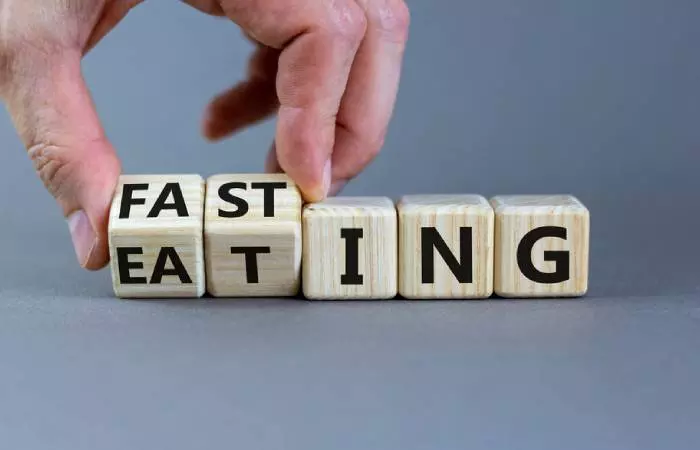
According to Cole Robinson, the snake diet plan offers the following benefits:
- Induces ketosis that leads to weight and fat loss
- May reverse type 2 diabetes
- May increase the production of HGHi A natural hormone that promotes growth in children and plays a role in metabolism in both adults and children.
- May boost your metabolism
- May promote cellular cleansing
- May clear out your skin
- May promote skin tightening
Although Robinson links these potential benefits to fasting and weight loss, there is no scientific evidence to back these claims. For instance, general weight loss and management are associated with a reduced risk of type 2 diabetes or a 24-hour fast may help increase the production of growth hormones (2),(3). However, there is no research to support that the snake diet reverses diabetes or boosts metabolism. In fact, there are hardly any studies on fasts with a duration as long as in the snake diet.
However, a recent study conducted on 1,422 adults on 4 to 21 days of prolonged states of fasting revealed that it led to weight loss. These participants were allowed 250 calories a day. They were also under constant medical supervision and a health and physical program. The study observed improvements in cardiovascular risk factors, such as blood pressure (4). However, a single study like this is not enough to confirm the effectiveness of any diet that involves prolonged fasting and an extremely restrictive diet. Further research is needed to evaluate its long-term effects.
While the snake diet mimics some elements of intermittent fasting, it is much stricter and seems to have no benefits that are backed by research. It is unlikely to meet your body’s daily nutritional needs, and the different phases of the diet are proof of the same. Check them out in the next section.
How To Start The Snake Diet

Phase 1
This phase is for beginners of the diet. It requires you to fast for at least 48 hours with the aim of starting ketosis. You may consume “snake juice” during this fasting period which is marketed as a detox drink and sold on the snake diet website. You may also consume a drink that contains apple cider vinegar, unsweetened black coffee, or tea. Plain water is not recommended.
Once you complete the 48-hour window, you enter a brief eating period of 1-2 hours. There are no guidelines regarding what to eat or restrict during this time. The diet only suggests you need to mindfully eat during these two hours and not gorge on food.
After feeding yourself, you begin a longer 72-hour fast. The eating window after this fast remains the same. Anecdotal evidence suggests that the initial phase of the diet may help detoxify your liver. However, it does not specify anything about the toxins the process targets.
However, remember that studies on the effectiveness of commercial detox drinks and diets in detoxifying the human body are sparse and inadequate (5).
Phase 2
The second phase of the diet requires you to fast for approximately 48-96 hours, followed by a single meal, which is to be continued until you reach your desired weight. The diet also encourages you to ignore your hunger and fast until you can no longer tolerate it.
While it claims that there are no side effects of doing so, studies on starvation claim otherwise. For instance, a study that examines the connection between starvation and bone metabolism found that longer periods of starvation may lead to stunted bone growth and decreased bone mineral density (6). Further, another study reveals that reduced dietary intake, as is the norm during this diet, may also lead to malnutrition (7).
Phase 3
This is the maintenance phase that comes after you have achieved your desired weight and requires you to fast for 24-48 hours. The diet plan suggests you listen to your body during this phase and follow your natural hunger cues. This sudden change in approach contradicts the diet’s initial insistence upon ignoring your hunger as long as you can, and it may not only be difficult to achieve after a period of starvation but may also have a drastic effect on the body.
Note: Before starting the snake diet, it is crucial to consult with a healthcare professional. This diet is highly restrictive and may not be suitable for everyone, especially those with pre-existing health conditions or individuals who have a history of eating disorders. Consulting with a healthcare provider ensures that you are taking the right steps for your health and safety.
These three phases of the snake diet are extremely restrictive and hard to follow. Check out the next section to figure out if you should really follow them to lose weight.
The Snake Diet For Weight Loss: Does It Work?
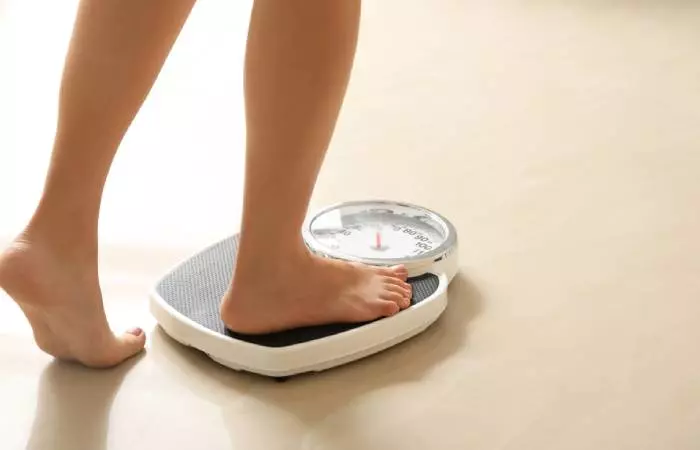
When it comes to the snake diet, rapid weight loss is the only benefit that seems obvious. After all, when you starve your body by eating only 1-3 meals per week, it is given that you will lose weight. A study reveals that weight loss is rapid early on in fasting and may range between 0.9 kg per day during the initial week and 0.3 kg per day by the third week (8).
But the real question is, at what cost? Can you actually fast for this long and stop eating 90-95% of your meals? To put this in context, let us take a look at what you will have to do in Phase 1 of this diet.
Day 1: Fasting
- Begin fasting and consume only snake juice throughout the day. No calorie intake is allowed.
Day 2: Fasting
- Continue fasting and drink snake juice with no calorie intake.
Day 3: Eating Window
- Consume 1 meal during the 1-2 hours eating window.
- Go back to fasting; this time for 72 hours.
This process is repeated until you reach your desired weight. It is important to note here that prolonged starvation may lower blood pressure levels as your body does not get the nutrients it requires for long. A case study on a 17-year-old teenage girl with an eating disorder showed very low blood pressure and an irregular pulse of only 47 bpm. The girl also complained of dizziness, fatigue, cold hands and feet, constipation, and headaches (9). In addition, starving yourself for too long may also lead to a decreased metabolic rate of the fat-free mass. In other words, the body slows down its calorie-burning rate (10). Hence, while the snake diet may lead to weight loss, it does not outweigh the side effects that come with it.
 Quick Tip
Quick TipThe snake diet weight loss method is highly controversial and not recommended by experts. But if you decide to go with it, scroll down to find out what to eat and restrict if you follow this diet.
Foods To Eat And Avoid On The Snake Diet

The snake diet allows one to consume only “snake juice” or a similar detox drink during the first 48 hours. The diet does not have a recommended list of foods, so it is assumed you can consume anything during the short eating window.
However, with such a small eating window, it is absolutely essential that you make nutritious food choices. Avoid calorie-dense foods, including fast and fried foods, processed meats, carbonated drinks and alcohol, chips and processed snacks, and sugar and sweeteners. Instead, avocados, fish, eggs, seeds, nuts, and non-starchy vegetables are some foods you can add to your snake diet meal plans.
During fasting only the “snake juice” is recommended for consumption. If you do not want to buy it, you can also make it at home. Check out the recipe in the next section.
The Snake Juice Recipe

Ingredients
- 2 liters of plain water
- 1 tablespoon of potassium chloride (salt-free)
- ½ tablespoon of Himalayan pink salt (sodium chloride)
- 1 tablespoon of baking soda (sodium bicarbonate)
- ½ tablespoon of food grade Epsom salt (magnesium sulfate)
How To Prepare
- Pour plain water into a jug and add all the ingredients to it.
- Stir in the ingredients with a spoon.
- Drink as much as you want throughout the day for electrolyte replenishment.
The snake diet, as we can see, may lead to rapid weight loss but is certainly not the safest approach to it. Hence, before you decide to give it a go, it is advisable to take note of the following side effects.
Side Effects Of The Snake Diet
According to the snake diet official website, the most common side effect you may experience is headaches due to sugar and caffeine withdrawal. It claims that these go away as you extend your fast. Further, it claims the diet has no other side effects, such as dizziness, fatigue, and muscle cramps if you drink the snake juice.
Irrespective of these claims, intense intermitten fasting and starvation-based diets have severe side effects:
1. Promotes Unhealthy Relationship With Food
In his YouTube videos, Cole Robinson uses terms like “fasting until you feel like death.” This kind of ideology encourages people to ignore hunger cues, causing them to develop an unhealthy relationship with food. Robinson also uses stigmatizing language in his videos, which could be triggering for people with body image issues and eating disorders, such as anorexia nervosai An eating disorder that causes people to obsess about what they eat and their weight due to the fear of being overweight. .
2. May Lead To Malnutrition
According to studies, reduced dietary intake is one of the common causes of malnutrition. Since the body cannot meet its metabolic requirements, it may affect respiratory, cardiac, and gastrointestinal functions (7).
Since the snake diet does exactly that, it may lead to many essential nutrients and vitamins being excluded from your diet. This may be dangerous, especially for people with underlying health conditions, such as diabetes and hypertension. The diet may also cause electrolyte imbalance, as the “snake juice” alone is not enough to replace what is lost during long fasts.
3. Is Unsustainable
Following this starvation-based diet may lead to a decreased metabolic rate and symptoms like dizziness, fatigue, constipation, and headaches (9),(10). Instead of encouraging healthy lifestyle changes, the snake diet follows phases of prolonged food restrictions with no research. Ultimately, it is nearly impossible for the body to stick to a diet that continuously starves it, making it unsustainable.
In addition, much anecdotal evidence suggests that just like other restrictive diets, the extreme nature of this diet and its emphasis on food restriction may make mental health problems worse, especially in those who tend towards anxiety or depression. However, limited data is available in this regard.
Due to all these reasons, mainstream medical or nutritional guidelines do not support the Snake Diet. Before attempting extreme diets such as this one, it is important to consult with a healthcare provider or registered dietitian to ensure it is safe and appropriate for your health needs and goals.
Infographic: A Quick Guide To The Snake Diet
Advocates of the snake diet claim that it can help with rapid weight loss and detoxification. However, the diet is extremely restrictive and has received criticism from healthcare professionals for its potential health risks and lack of scientific evidence. The following infographic will give you a brief overview of the diet and take you through its purported benefits as well as side effects. Check it out!

Illustration: StyleCraze Design Team
The snake diet is an extreme dietary approach that encourages intense and prolonged fasting periods with a single meal in between. While you are recommended to only consume “snake juice” during the fast, the diet comes with no regulations on what you can eat during the eating window. It only recommends eating enough to feed oneself. Since the diet has no scientific backing and insists its followers push themselves to an extreme degree, most healthcare professionals do not recommend it. If you want to lose weight, it is best to follow safe and healthy lifestyle practices, such as exercising regularly, avoiding sugary and processed food, and cutting down your calorie intake. If you still want to try other forms of intermittent fasting, do it after consulting a doctor and under the supervision of a registered dietitian.
Frequently Asked Questions
Are there any alternatives to the snake diet for weight loss?
The Mediterranean diet, low-carb diets like keto, and intermittent fasting are alternatives to the snake diet that encourage weight loss without imposing severe dietary restrictions. These methods emphasize moderate weight loss and long-term health and are frequently seen as more balanced and sustainable.
Is following the snake diet the same as fasting?
No, the snake diet incorporates fasting as a central component of its approach. However, it is not the same as traditional fasting or other fasting protocols. It involves longer and more intense fasting periods and a limited eating window of 1-2 hours.
How long do you do the snake diet?
The duration of the snake diet can vary depending on individual goals, preferences, and tolerance. Cole Robinson, the founder of the diet, recommends following it until you have reached your desired weight. However, always consult your healthcare provider or registered dietitian before starting any new diet.
Does “snake juice” dehydrate you?
No, it is an electrolyte beverage that may help replenish the body’s fluids and maintain proper hydration levels during the fast. However, since it is the only thing you can have during the fast, it alone may not be enough to tackle dehydration and electrolyte imbalances.
What is the snake oil diet?
There are no recognized dietary practices that go by the name “snake oil diet.” The term snake oil usually refers to healthcare frauds, scams, and deceptive marketing. When combined with the term “diet,” it may be used when the diet is a fad diet.
This video contains information on all you need to know about the snake diet. Check it out to understand the unique approach of the diet and find out if it is ideal for your fitness goals.
References
Articles on StyleCraze are backed by verified information from peer-reviewed and academic research papers, reputed organizations, research institutions, and medical associations to ensure accuracy and relevance. Read our editorial policy to learn more.
- The Effect of Fasting on Human Metabolism and Psychological Health
https://www.ncbi.nlm.nih.gov/pmc/articles/PMC8754590/ - The importance of weight management in type 2 diabetes mellitus
https://www.ncbi.nlm.nih.gov/pmc/articles/PMC4238418/ - The effect of prolonged fasting on levels of growth hormone-binding protein and free growth hormone
https://pubmed.ncbi.nlm.nih.gov/22386777/ - Safety, health improvement, and well-being during a 4 to 21-day fasting period in an observational study including 1422 subjects
https://www.ncbi.nlm.nih.gov/pmc/articles/PMC6314618/ - Detox diets for toxin elimination and weight management: a critical review of the evidence
https://pubmed.ncbi.nlm.nih.gov/25522674/ - Evidence for the adverse effect of starvation on bone quality: a review of the literature
https://www.ncbi.nlm.nih.gov/pmc/articles/PMC4355339/ - Malnutrition: causes and consequences
https://www.ncbi.nlm.nih.gov/pmc/articles/PMC4951875/ - Fasting: the history pathophysiology and complications
https://www.ncbi.nlm.nih.gov/pmc/articles/PMC1274154/ - Anorexia nervosa: the physiological consequences of starvation and the need for primary prevention efforts.
https://www.ncbi.nlm.nih.gov/pmc/articles/PMC2323541/ - Chronic starvation secondary to anorexia nervosa is associated with an adaptive suppression of resting energy expenditure
https://www.ncbi.nlm.nih.gov/pmc/articles/PMC3942230/
Read full bio of Mary Sabat
Read full bio of Himanshi Mahajan
Read full bio of Ravi Teja Tadimalla
Read full bio of Moksha Gandhi









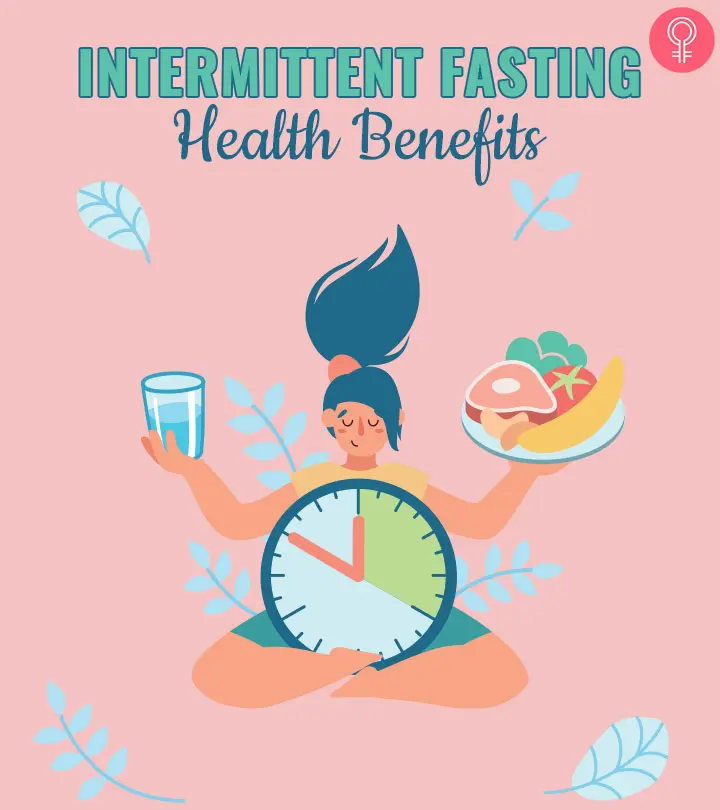


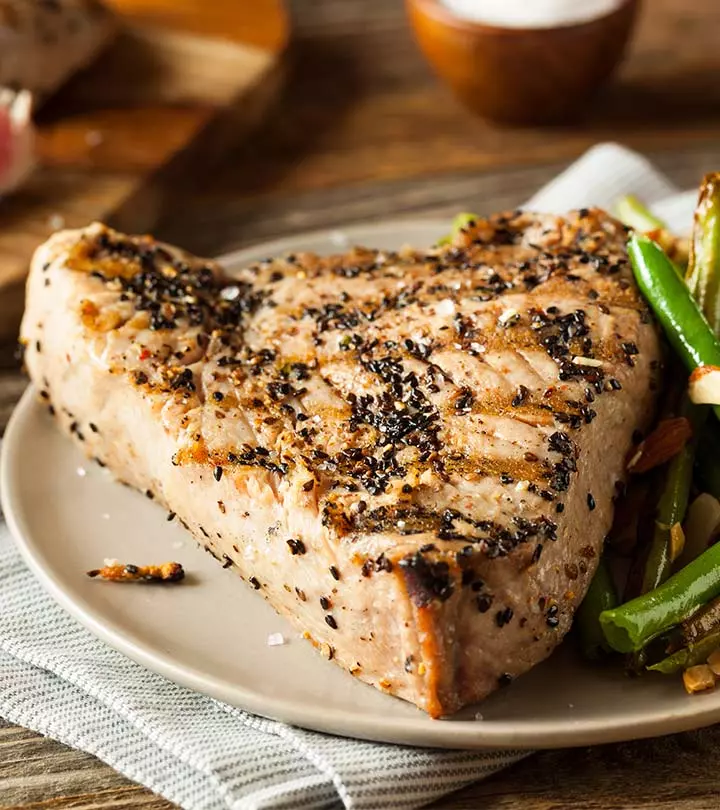









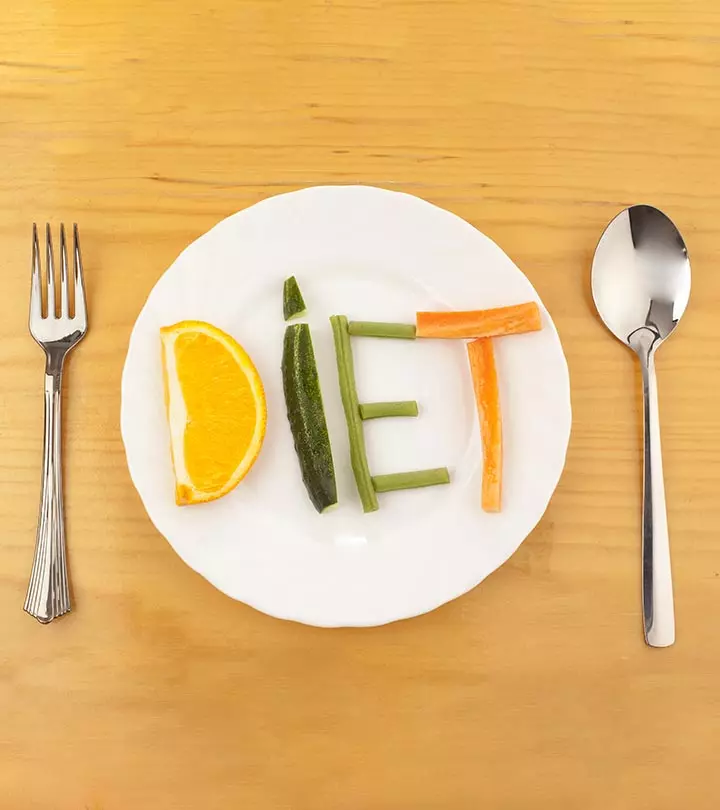




Community Experiences
Join the conversation and become a part of our empowering community! Share your stories, experiences, and insights to connect with other beauty, lifestyle, and health enthusiasts.